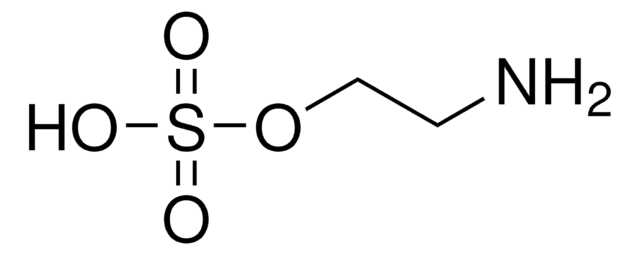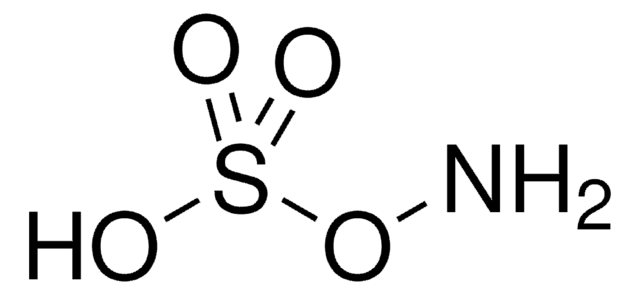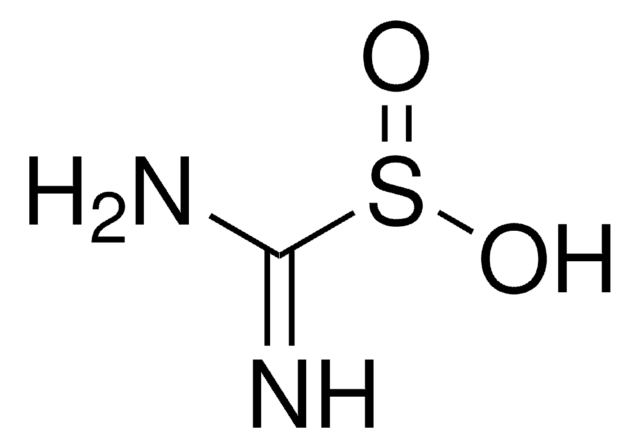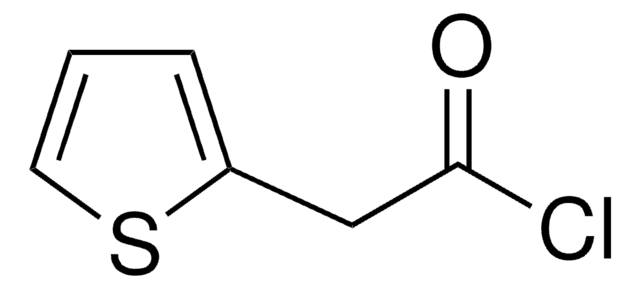127442
Aminomethanesulfonic acid
97%
Synonym(s):
(Aminomethyl)sulfonic acid, 1-Aminomethanesulfonic acid, Aminomethanesulfonic acid, Aminomethanesulphonic acid, aminomethylsulfonic acid
Sign Into View Organizational & Contract Pricing
All Photos(2)
About This Item
Linear Formula:
NH2CH2SO3H
CAS Number:
Molecular Weight:
111.12
Beilstein:
1811756
EC Number:
MDL number:
UNSPSC Code:
12352106
PubChem Substance ID:
NACRES:
NA.22
Recommended Products
Quality Level
Assay
97%
mp
184 °C (dec.) (lit.)
functional group
amine
sulfonic acid
SMILES string
NCS(O)(=O)=O
InChI
1S/CH5NO3S/c2-1-6(3,4)5/h1-2H2,(H,3,4,5)
InChI key
OBESRABRARNZJB-UHFFFAOYSA-N
Looking for similar products? Visit Product Comparison Guide
Application
Aminomethanesulfonic acid can be used as a reactant to synthesize: 1-Sulfomethyltetrazole-5-thiol disodium salts, which are useful key intermediates for the preparation of cefonicid sodium. Tridentate N-(2-hydroxybenzyl)aminomethane sulfonic acid Schiff-base ligand by reacting with salicylaldehyde.
It can also be used to functionalize the surface of single-walled carbon nanotubes (SWCNT) or porous metal-organic frameworks (MOF) to introduce the sulfonic acid functional groups for the preparation of nanocomposites.
It can also be used to functionalize the surface of single-walled carbon nanotubes (SWCNT) or porous metal-organic frameworks (MOF) to introduce the sulfonic acid functional groups for the preparation of nanocomposites.
Signal Word
Danger
Hazard Statements
Precautionary Statements
Hazard Classifications
Eye Dam. 1 - Skin Corr. 1B
Storage Class Code
8A - Combustible corrosive hazardous materials
WGK
WGK 3
Personal Protective Equipment
dust mask type N95 (US), Eyeshields, Gloves
Choose from one of the most recent versions:
Already Own This Product?
Find documentation for the products that you have recently purchased in the Document Library.
Customers Also Viewed
Copper (II) complexes of Schiff-base and reduced Schiff-base ligands: Influence of weakly coordinating sulfonate groups on the structure and oxidation of 3, 5-DTBC
Sreenivasulu B, et al.
European Journal of Inorganic Chemistry, 2005(22), 4635-4645 (2005)
W S Lewis et al.
The Journal of biological chemistry, 266(31), 20823-20827 (1991-11-05)
The composition and structural aspects of the amino and carboxylic acid groups required for incorporation into peptides by transpeptidation and inhibition of hydrolysis in carboxypeptidase Y-catalyzed reactions were studied. Separation of these two groups by even one carbon prevents incorporation
Sonoko Ishizaki-Koizumi et al.
Biochemical and biophysical research communications, 322(2), 514-519 (2004-08-25)
The activation of Kupffer cells represents a central mechanism of liver injury involving the production of TNF-alpha. It is known that glycine prevents LPS-induced production of TNF-alpha in isolated Kupffer cells. In this study, the possibility that glycine analogues might
Damla Kaner et al.
Environmental geochemistry and health, 32(4), 321-325 (2010-04-20)
A new polymeric resin with amino sulfonic acid pendant functions has been prepared for the extraction of acidic and basic dyes from water. Beaded polymer supports were prepared by suspension polymerization of vinyl benzyl chloride (0.9 mol) and ethylene glycol
Synthesis of 1-sulfomethyltetrazole-5-thiol disodium salts
Ling Zhang, et al.
Speciality Petrochemicals (2011)
Our team of scientists has experience in all areas of research including Life Science, Material Science, Chemical Synthesis, Chromatography, Analytical and many others.
Contact Technical Service












